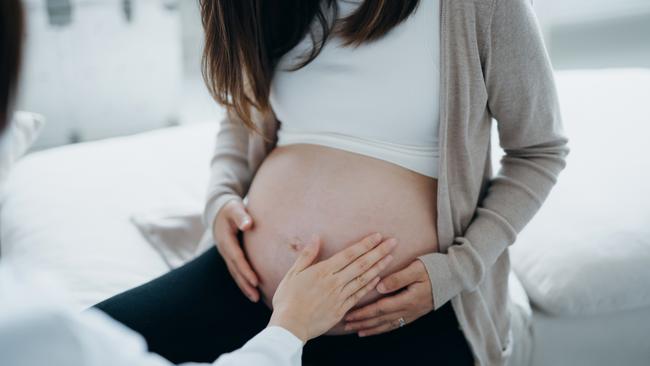Victorian mums to get vital mental health test
Under a national overhaul of peri-natal care, mental health screening will become as standard as ultrasounds in pregnancy healthcare.

Victoria
Don't miss out on the headlines from Victoria. Followed categories will be added to My News.
Victorian women will be among the first in Australia to receive new mental health screening under a national overhaul of prenatal psychological healthcare.
Experts have warned the pandemic placed pregnant women and new mothers under excessive stress, with helpline calls increasing by 25-30 per cent.
Frankston Hospital was the first public provider to offer the iCope screening program earlier this year.
The Centre of Perinatal Excellence plans to eventually roll it out to every pregnant woman in Australia.
The aim is for the online questionnaire, screening for current symptoms and future risk factors, to become as standard as ultrasounds in pregnancy healthcare.
One in five women suffer peri-natal – meaning pre or post pregnancy – anxiety, and suicide is one of Australia’s leading causes of maternal death.
But the majority remain reluctant to seek help, with almost 75 per cent of affected women waiting until crisis point.
Frankston Hospital peri-natal psychiatrist Lucinda Smith said doctors were “definitely seeing more because of the effects of general isolation and restrictions”, compared with pre-pandemic figures.
“We have been seeing more people at the severe end of the spectrum,” Dr Smith said.
She said factors included uncertainty and a lack of social support due to restrictions, fears of catching Covid and strict rules banning partners for some scans, including ones with “unwelcome news”.
The iCope screening tool was “fantastic”, Dr Smith said.
“If we identify that someone might be a risk, we can also have those proactive discussions and make sure that those women know what to look out for,” she said.
COPE executive director Nicole Highet said the guidelines recommended screening for all pregnant women, but it did not always happen.
A recent example included a patient sent home with a different test that was half the recommended length and no instructions on what to do with the results, Dr Highet said.
“That’d be like telling someone to go home and do their own blood pressure,” she said.
“This is the time of life when women are most likely to develop mental health problems or relapse.”
The screening tool can be used on a phone at home before an appointment.
Dr Highet said the tool gave patients more autonomy and privacy and was available in 12 languages.
“The patient also gets their own personalised report in their own language,” she said.
“I’ve worked in a public maternity hospital, where only 4 per cent of non-English-speaking women got screened.”




